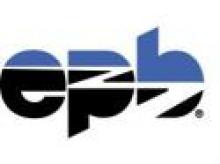Chattanooga Announces 1 Gbps Tier
Chattanooga has announced a new level of service, offering 1Gbps to all subscribers in a unique citywide offering. Chattanooga previously led the nation with a 150Mbps tier. Today has been crazy, and lots is being written about this announcement, so I'll highlight stories and saving adding something interesting until later.
A quick reminder, we recently wrote about their insistence on taking fiber to everyone, rural and urban.
The New York Times started the Choo Choo coverage this morning:
Only Hong Kong and a few other cities in the world offer such lightning-fast service, and analysts say Chattanooga will be the first in the United States to do so. “This makes Chattanooga — a midsized city in the South — one of the leading cities in the world in its digital capabilities,” said Ron Littlefield, the city’s mayor.Ars Technica offers additional perspective (as usual):
The city hopes this will give it a competitive advantage; on the new website promoting the service, the city's Electric Power Board pitches its country-leading broadband as "a test bed for next generation technology," as "the ultimate tool for entrepreneurs," and a place where "bandwidth is no problem." The consistent theme: you should move to Chattanooga.(It also reminds us that Chattanooga is far beyond the FCC's timid goals in the National Broadband Plan.) Giga Om has lost the lust for his still-respectable 100Mbps.
EPB says that their 100 Mbps service is now costing $140 a month and the 1 Gbps service will cost $350 a month.Though Chattanooga has beat Google to the punch, this does little to change Google's goal of even cheaper 1Gbps with open access - the race is not simply to 1Gbps, it is to the future! Those who are putting Google down in some way are grasping for something to say about a stunningly unique offering.



